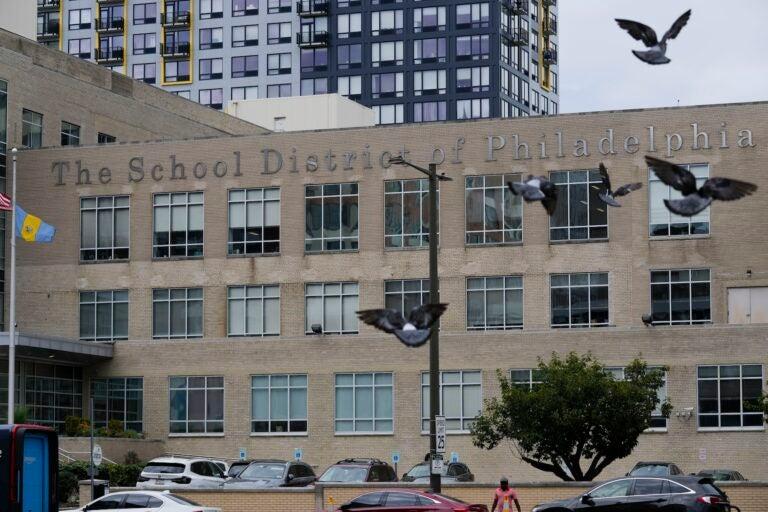Empowering PhiladelphiaÔÇÖs Youngest: Drexel UniversityÔÇÖs Pioneering Kindergarten Transition Program
Introducing a Groundbreaking Kindergarten Readiness Initiative
Drexel UniversityÔÇÖs School of Education has unveiled a transformative program aimed at preparing PhiladelphiaÔÇÖs preschoolers for a seamless entry into kindergarten. This innovative ÔÇťbridgeÔÇŁ initiative is crafted to support children and their families by providing comprehensive early learning experiences that address academic and social-emotional needs. By collaborating with neighborhood early childhood centers and community organizations, the program strives to reduce first-day anxieties and foster confidence, ensuring children embark on their educational journey well-equipped.
Core Components of the Program
- Engaging Educational Activities: Focused on building early literacy, numeracy, and self-regulation skills through interactive play.
- Parental Empowerment Workshops: Offering caregivers practical tools to nurture their childÔÇÖs learning and emotional well-being at home.
- Resource Accessibility: Helping families navigate school logistics such as transportation, meal plans, and extracurricular opportunities.
- Inclusive Curriculum Design: Emphasizing cultural responsiveness to honor the diverse backgrounds of PhiladelphiaÔÇÖs children.
| Program Element | Objective | Timeframe |
|---|---|---|
| Play-Centered Learning | Encourages curiosity and social skills development | 8 weeks |
| Caregiver Workshops | Equips families to support learning at home | Monthly sessions |
| School Familiarization Visits | Acclimates children to school environments | Two visits |
Addressing Educational Gaps and Enhancing Social Competencies
Understanding the challenges many Philadelphia children face before kindergarten, DrexelÔÇÖs program delivers personalized support to bridge critical learning gaps. Through early assessments, educators identify each childÔÇÖs unique needs and tailor activities that strengthen foundational skills in literacy, numeracy, and communication. Small group settings promote peer interaction, while modules focusing on emotional regulation and cooperation prepare children for the social demands of school life.
Program Highlights for Skill Development
- Peer-focused sessions to cultivate social engagement
- Interactive lessons targeting emotional and behavioral skills
- Continuous progress tracking to refine teaching methods
- Family workshops reinforcing learning beyond the classroom
| Skill Focus | Support Method | Anticipated Benefit |
|---|---|---|
| Early Reading | Phonemic awareness activities | Enhanced letter and sound recognition |
| Mathematical Concepts | Hands-on counting and sorting games | Improved number comprehension |
| Social Interaction | Role-playing exercises | Better cooperation and empathy |
By combining academic skill-building with social-emotional learning, the program has contributed to a measurable increase in kindergarten readiness rates across Philadelphia, positively influencing childrenÔÇÖs educational trajectories.
Strengthening Early Learning Through Family-Educator Partnerships
Central to the programÔÇÖs success is a collaborative framework that unites educators and families in nurturing childrenÔÇÖs early development. Recognizing parents as vital partners, the initiative fosters open communication and shared goal-setting to tailor learning experiences that respect each childÔÇÖs cultural and developmental context.
Key Collaborative Practices
- Consistent Communication: Home visits and workshops keep families engaged and informed.
- Shared Educational Resources: Providing materials and community connections to support learning at home.
- Joint Goal Development: Aligning expectations between families and educators to ensure smooth transitions.
| Collaborative Activity | Benefit to Children |
|---|---|
| Home Visits by Educators | Builds trust and contextual understanding |
| Family Learning Workshops | Empowers caregivers with practical skills |
| Co-created Learning Goals | Ensures aligned expectations for smooth transitions |
Embracing Cultural Diversity and Community Involvement
The program places a strong emphasis on culturally responsive teaching, ensuring that learning environments reflect and celebrate the rich diversity of PhiladelphiaÔÇÖs communities. Future educators are trained to incorporate studentsÔÇÖ cultural identities into their teaching strategies, fostering inclusivity and a sense of belonging. This culturally attuned approach is complemented by active community engagement, which connects schools, families, and local organizations to create a supportive network around young learners.
Community-Centered Initiatives
- Family Resource Workshops: Equipping caregivers with culturally relevant tools and support.
- Celebration of Local Traditions: Events that honor the histories and customs of diverse communities.
- Partnerships with Community Leaders: Aligning educational goals with neighborhood priorities.
| Focus Area | Example Initiative | Resulting Impact |
|---|---|---|
| Culturally Responsive Curriculum | Incorporating storytelling from varied cultural perspectives | Boosts student engagement and self-esteem |
| Community Collaboration | Partnerships with local libraries for reading programs | Enhances literacy and community connection |
| Family Engagement | Monthly family resource nights | Strengthens communication between home and school |
Conclusion: A Model for Early Childhood Education Success
Drexel UniversityÔÇÖs School of Education is setting a new standard for early childhood education in Philadelphia by fostering strong connections between families, schools, and communities. This comprehensive kindergarten transition program not only equips children with essential academic and social skills but also builds a foundation of trust and cultural respect. As the initiative continues to evolve, it offers a replicable blueprint for enhancing school readiness and promoting equitable educational outcomes nationwide.








